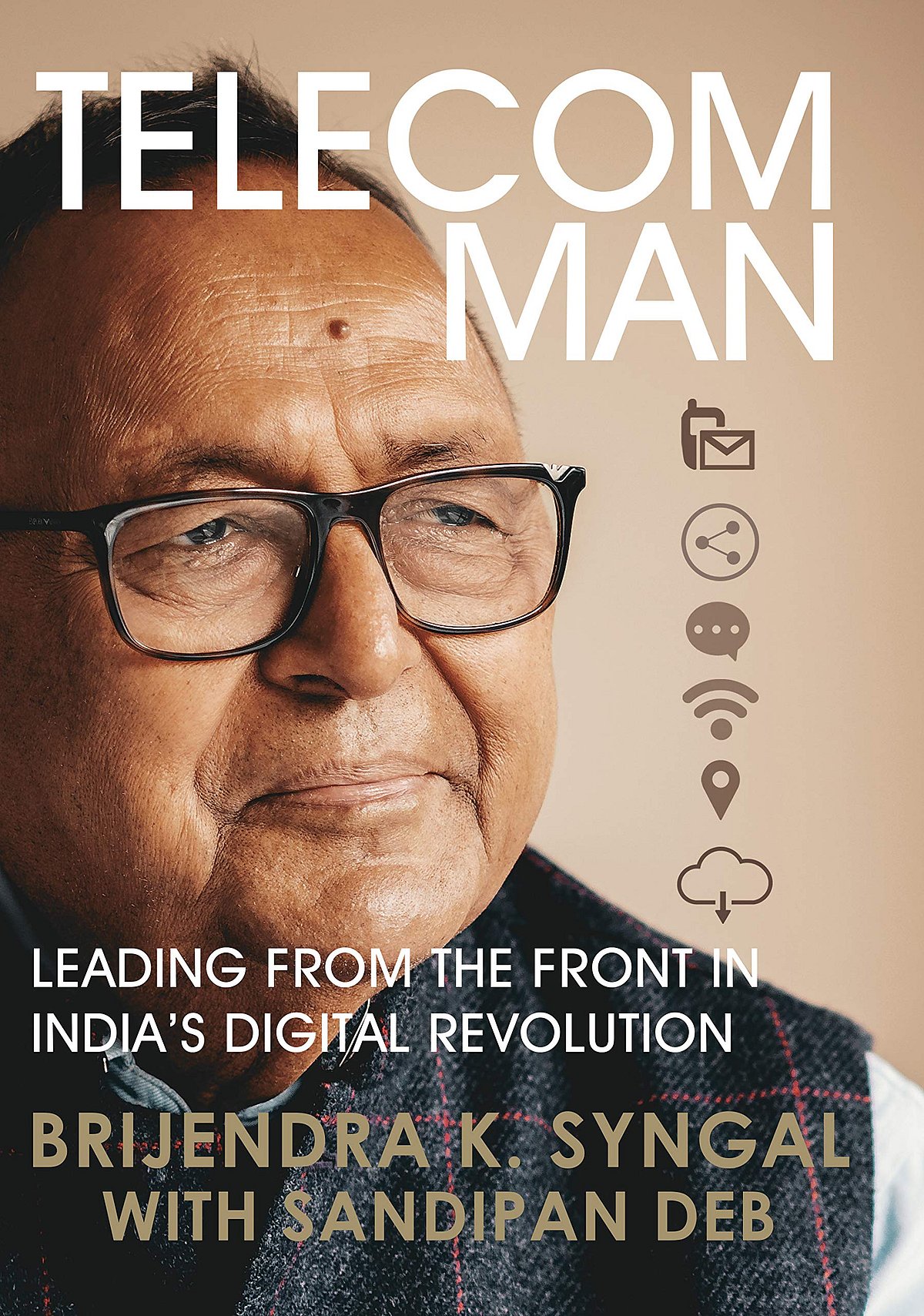Taking India Online

Autobiographies are seldom surreal, but a recent book on the life of BK Syngal, who led India’s telecom revolution as the CMD of VSNL in the ’90s, manages to feel vertiginous. One gets to hear, from the horse’s mouth, of how India went from waiting hours for an STD call to the always-online urban India of today. As the English-speaking elites self-isolate, here is how the Internet first became possible in India.
The book is fast-paced and conversational. Autobiographies are read for two reasons: inspiration and insider information. Syngal, as a key player in India’s sunrise industry, offers plenty of both.
He emerges as a Nehruvian frontiersman figure, braving sandstorms in Rajasthan, cheetahs in Assam, and nearly being buried in snow in Kashmir, helping build the basic infrastructure for the telecom sector. Graduating from IIT Kharagpur in the ’60s, he demonstrates his independence of mind early. His first contrarian decision feels surreal today: he picks electrical engineering even though his seniors tell him it has ‘no future’! Later, he quits his PhD in two months to start working, against his professor’s advice.
The private sector, while well-paying, does not utilise his technical chops, and so he quits to serve his country. First placed in the Indian Inspection Service, he refuses to approve substandard, or, in one memorable case, non-existent(!) equipment for government purchase. Exiled to a clerical job, he gets into the Indian Telecom Service, and that is how he comes to his calling.
Openomics 2026: Continuity and Conviction
06 Feb 2026 - Vol 04 | Issue 57
The performance state at its peak
An early achievement is the setting up of 35 earth stations to link up with India’s early satellite program, staying on schedule and under the budget of INR 40 crores. This gets him a plum foreign assignment with intergovernmental organisation Inmarsat (now IMSO), paying a tax-free salary in London, but in spite of having a solid career there, he throws his hat into the running for CMD of VSNL on the advice of Sam Pitroda, and wins the post after surmounting the challenge of forty other candidates.
Pitroda is gone by the time Syngal takes up his post, pushed out by the assassination of his political patron, Rajiv Gandhi. Nevertheless, Syngal manages to establish himself, getting so much done that a later BusinessWeek International profile places him as only one of six Indians in ‘50 Stars of Asia’, saying he is called, ‘‘The Bulldozer’ for his ability to crash through one bureaucratic barrier after another,’ and that, ‘Since 1991, the year he took charge, VSNL has expanded from a $125 million company with one product, international long-distance phone service, into a $1.65 billion giant also offering Internet, leased-line, and data services.’
As for juicy details, one gets profiles of political titans like Rajesh Pilot, Sushma Swaraj and Jyoti Basu. Multiple senior bureaucrats come in for special censure: politicians consistently accept Syngal’s principled stance against doing favours, but bureaucrats nurse grudges.
At key points, Syngal’s political connections, both personal and professional, are called upon to help him navigate the shark-infested waters of the public sector, revealing how much maneuvering is necessary. Even more interesting, to me, is his account of private sector inefficiencies and shenanigans, covering both Ambanis, BPL’s Rajeev Chandrashekhar, and even IT sector barons that lined up to bribe Syngal with stocks in their companies while he was helming their rival, VSNL.
It is these private sector hijinks that instigate Syngal’s most politically consequential act: his instrumental role in exposing the 2G scam, which toppled the UPA regime and led to our present moment—though many of the private players who used A. Raja to try and make a killing survived the expose, as they so often tend to do.

